Egypt
Prominent Egyptian activist Ahmed Douma walked out of the Badr prison complex outside Cairo, a free man on Saturday (Aug. 19).
He was pardoned along with four other prisoners, according to a presidential decree. The pardons, dated Saturday (Aug. 19), were published in Egypt’s Official Gazette.
Douma was serving a 15-year sentence after being convicted of taking part in clashes between protesters and security forces in the Egyptian capital in December 2011.
The nearly weeklong clashes that left some 40 people dead erupted after mostly young activists took to the streets to protest the post-Mubarak political transition overseen by the military. The riot involved a fire that gutted parts of a library housing rare manuscripts and books. Other government buildings, including the parliament, were damaged during the protests.
The clashes brought international attention when riot police were filmed beating, stripping and kicking female demonstrators in Cairo’s Tahrir Square, the epicenter of the 2011 uprising.
Activists received the news of Douma's freedom with jubilation on social media, and called for the release of other jailed pro-democracy activists.
"Douma has not set foot out of prison since 2013 ... my heart will burst,” Mona Seif, the sister of jailed activist Alaa Abdel-Fatthah, wrote on Facebook.
Douma, 37, was first sentenced in 2015 to life in prison along with 229 other defendants who were all tried in absentia. Douma appealed and Egypt’s highest appeals court ordered his retrial, ultimately leading to the 15-year sentence and a fine of 6 million Egyptian pounds, about $195,000.
He was one of the faces of the 2011 pro-democracy protests that swept the Arab world's most populous country and ended Hosni Mubarak’s 30-year rule. He was also a fierce critic of Islamist President Mohammed Morsi, who was overthrown in 2013 amid mass protests against his one-year divisive rule.
Before Douma, Patrick Zaki and lawyer Mohamed al-Baqer had been freed. Al-Baqer's client, Alaa Abdel Fattah remains Egypt's most notorious political prisoner.
Bleak human rights record
For years, many politicians and public figures called on President Abdel Fattah el-Sissi to pardon Douma, as part of mounting calls to end a yearslong crackdown on dissent. Egyptian authorities have in recent months released hundreds of activists after its human rights record came under international scrutiny when it hosted the U.N. climate change summit in November.
Ziad el-Elaimi, who was freed shortly before Egypt hosted COP27, welcome Douma's gained freedom after "9 and half years of his life had been stolen."
Hower, el-Elaimi said the issue of human rights in Egypt remains "unresolved": 'someone is using free men as hostages" and "people are still afraid to express their opinions freely".
Egypt, a close U.S. ally, has waged a wide-scale crackdown on dissent over the past decade, jailing thousands of people. Most of those imprisoned are supporters of Morsi, the Islamist president, but the crackdown has also swept up prominent secular activists.
In recent months el-Sissi’s government has allowed some criticism of its policies amid a daunting economic crisis and growing calls for a political reform ahead of the 2014 presidential elections.
'Emptying the ocean with a spoon'
Ahmed Douma's presidential pardon is a "very good news" to Hossam Baghat, the founder of the Egyptian Initiative for Individuals rights, since he was one of "the regime's most hated militants."
But, he adds, as a charge: "the regime is trying to empty the ocean with a spoon" with "random choices with no transparency or explanation as to why some go out and others are ignored".
Since January, activists have numbered the death of 24 prisoners, six of whom were detained in new "rehabilitation centers" built to replace the country's dozens of dilapidated prisons. The rehabilitation centers include libraries and workshops.
The loosening of the government’s zero-tolerance policy began following the president’s call for a national dialogue in April last year with the aim of crafting recommendations for the country’s future.
El-Sissi said Wednesday (Aug. 09) he received a set of political, economic and social proposals from the dialogue which will be studied and implemented according to his legal power. Other proposals, he said on the platform X, formerly known as Twitter, would be referred to parliament for deliberations.
The proposals, obtained by The Associated Press, include reforming election laws and improving human rights, such as the creation of an anti-discrimination commission. They also include other recommendations on education, economy, and tourism.
The country will host presidential elections next year.




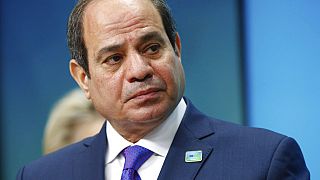
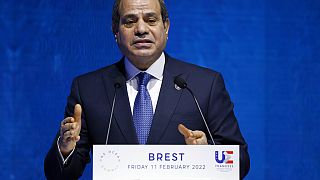
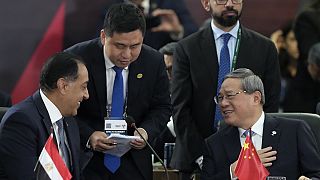
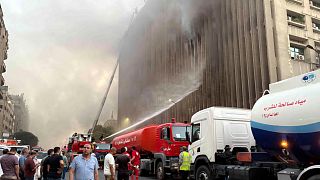

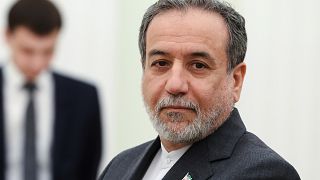


01:05
Ethiopia's mega-dam on the Nile is "now complete", Prime Minister says
00:59
Several killed in road crash in Egypt’s governorate of Menofia
02:19
Israel deports Greta Thunberg, other activists from Gaza aid flotilla
01:09
Egypt: Inflation forecast to have climbed further in May
01:05
U.K-Egypt: Mother of jailed activist hospitalised amid hunger strike
02:20
Tarik Saleh returns to Cannes with explosive political thriller ‘Eagles of the Republic’